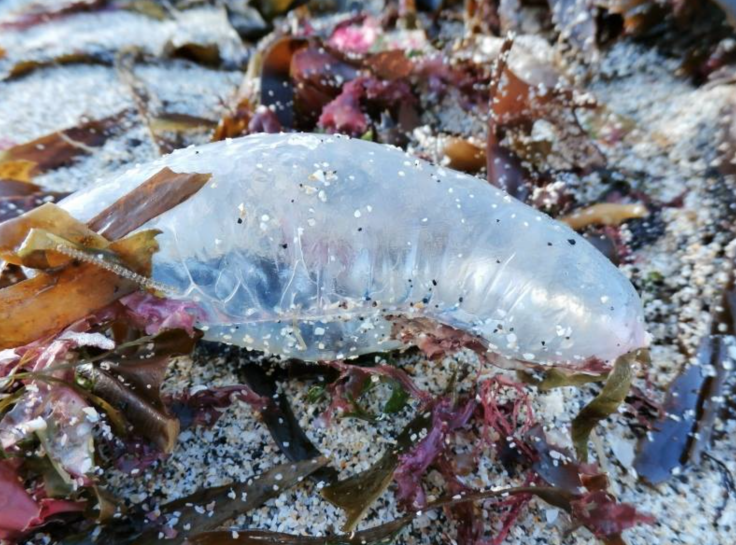Dangerous Portuguese man-o-war washes up on UK shore

Members of the public have been warned to take care on Britain's beaches, after a dangerous Portuguese man-o-war was found washed up in Cornwall on 30 July.
The sea creatures can deliver a particularly nasty sting if touched, but are rarely reported in the UK.
Although they superficially resemble jellyfish, Portuguese man-o-war are actually hydrozoans - creatures made up of a colony composed of many individual marine organisms.
The Friends of Portheras Cove, where the Portuguese man-of-war was spotted, posted a picture of the venomous creature on Twitter and on their Facebook page, along with a warning not to get too close.
"This may look like a semi-deflated balloon but it is in fact a Portuguese man-o-war that was found washed ashore at Portheras this morning.
"These hydrozoans have a powerful sting, so do not touch. Although rare in the UK, such strandings do happen from time to time, and we had a spate at the cove back in the autumn of 2012.
"They are usually blue in colour and sink into the sand/seaweed when the creatures strand so are not immediately obvious.
"They can still sting when stranded like this so the message is - don't ever touch one."
Portuguese Man-o-War at Portheras during #2minutebeachclean this morning. Take care! @mcsuk @CornwallNature pic.twitter.com/ZCsYbqiUxz
— Friends of Portheras (@Portheras) July 30, 2015The Marine Conservation Society, which surveys underwater wildlife, also warned curious people to stay clear of the "little devils."
"They look super-sweet but [are] extremely dangerous to humans due to its powerful sting. If you find these little devils in numbers - the local authorities must be alerted," the society wrote on its Facebook page.
"They're beautiful creatures, but when they get stranded on a beach or they're not in the water, children can think they're balloons or something else," warned biological scientist and Friends of Portheras Cove spokesperson Delia Webb.
"They don't actually realise they've got a powerful sting and they can be dangerous even after they've been stranded. The venom is quite powerful," she told the BBC.
© Copyright IBTimes 2025. All rights reserved.





















